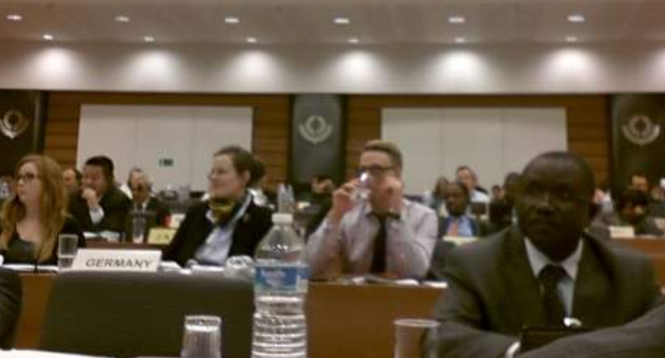
Meeting in Brussels in 2005, Customs Directors-General representing the then 166 member states of the World Customs Organization (WCO) unanimously adopted the SAFE Framework of Standards to Secure and Facilitate Global Trade (SAFE Framework). The framework was developed by the WCO and its member states in collaboration with international organizations and the global business community in order to improve the global trade regime and make it the international supply chain safer. Despite the fact that the framework does not include an express provision on international disaster relief consignments, it might nevertheless have positive implications for their facilitation.
The global supply chain is vulnerable to international terrorism, with the potential to affect economies worldwide. This awareness and the desire to secure and facilitate global trade led to the establishment of the SAFE Framework in the aftermath of 09/11 . SAFE is built on two pillars, namely customs-to-customs network arrangements and customs-to-business partnerships. These two pillars ensure the exchange of timely and standardized information between the different parties, enabling more effective risk management. It also facilitates ‘fast track’ agreements between states (between the US and Canada, for example) to reduce the number of required physical customs checks. Moreover, the framework establishes the concept of Authorized Economic Operators (AEO), which benefit from reduced examination rates. An AEO is defined as “a party involved in the international movement of goods in whatever function that has been approved by or on behalf of a national customs administration as complying with WCO or equivalent supply chain security standards. AEOs include inter alia, manufacturers, importers, exporters, brokers, carriers, consolidators, intermediaries, ports, airports, terminal operators, integrated operator, warehouses, distributors.”
These provisions do not only secure and facilitate global trade, but they may also have positive impacts on the clearances of relief consignments, as a paper prepared by the WCO suggests. In line with the SAFE Framework and the AEO concept, appropriate humanitarian actors could be identified and granted simplified and accelerated procedures at customs in the event of disaster relief operations. Not only would this allow for quicker access and provision of relief goods, but it would also serve as an additional assurance to the receiving state that incoming assistance will be provided in accordance with humanitarian principles and meets agreed quality standards. By providing advance information and establishing the automated exchange of information based on harmonized and interoperable messages, the arrival of relief consignments could be communicated in advance, which would allow for prior risk management, better coordination of tasks between customs and the operators and ultimately to expedited clearances. If a receiving state, based on a comparable risk assessment, has reasons to believe that goods should be classified as high-risk cargos, it can require the sending state to perform an outbound inspection.
As a standard, the SAFE Framework is not legally binding but it presents recommendations for states. Despite its non-binding nature, it is currently being implemented by countries all around the world, and Georges Cantone, WCO Technical Attaché, reports very positive feedback from both states and businesses alike. They are very pleased with the improvements the Framework has brought for them: goods pass borders with minimum delays, thanks to AEO mutual recognition agreements (MRA) and if they are being checked on the basis of a risk-management process, customs are using non-intrusive equipment such as scanners. In order to facilitate implementation, the WCO organises regional workshops for states. Moreover, the WCO has compiled a number of related instruments and guidelines in a SAFE Package, which provides support for implementation of the framework. Looking forward, WCO is aiming to step up promotion of the framework in African and South American countries.